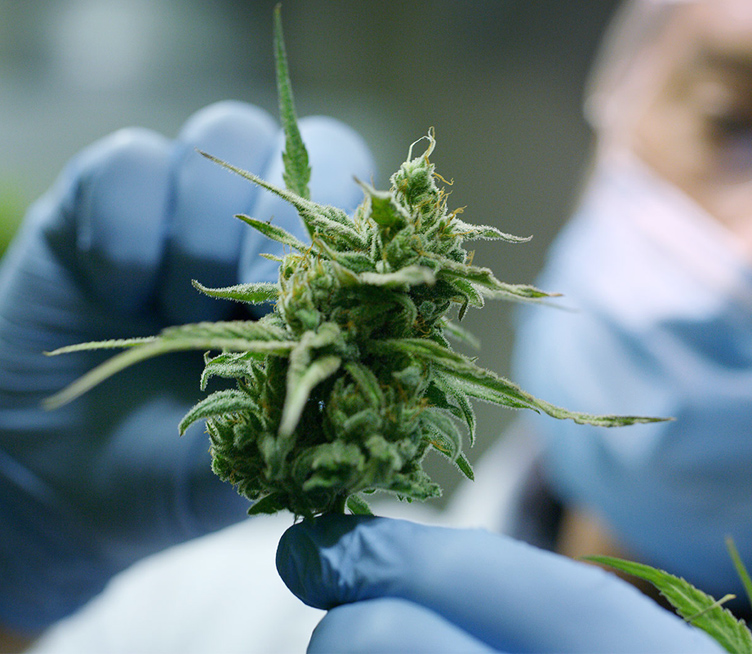0
You have 0 items in your cart
Cannabis has been used for medicinal purposes for centuries, and there is a growing body of research that supports its therapeutic potential. In recent years, there has been a surge in studies examining the effects of cannabis on a wide range of medical conditions, including chronic pain, anxiety, epilepsy, and more. This blog post will provide an overview of some of the most promising research studies on cannabis and its potential therapeutic benefits.
Before delving into the research studies, it is important to understand the endocannabinoid system (ECS). The ECS is a complex cell-signalling system that plays a key role in regulating various physiological and cognitive processes in the body. The system is composed of three main components: endocannabinoids, receptors, and enzymes. Endocannabinoids are naturally occurring compounds in the body that binds to cannabinoid receptors to produce various effects. Cannabis contains phytocannabinoids, which can also bind to these receptors and produce similar effects.
One of the most well-known therapeutic benefits of cannabis is its ability to alleviate pain. Several studies have examined the effects of cannabis on chronic pain, with promising results. A 2018 study published in the Journal of Pain found that cannabis use was associated with a significant reduction in chronic pain, with no serious adverse effects reported. Another study published in the Journal of Psychoactive Drugs found that medical cannabis use was associated with a reduction in opioid use in chronic pain patients.
Anxiety and depression are two of the most common mental health disorders in the world, and cannabis has been studied for its potential to alleviate symptoms of both conditions. A 2019 study published in the Journal of Affective Disorders found that cannabis use was associated with reduced symptoms of depression, anxiety, and stress. However, it is worth noting that some studies have suggested that cannabis use may actually worsen symptoms of anxiety in some individuals.





Epilepsy is a neurological disorder that is characterized by seizures, and cannabis has been studied for its potential to reduce the frequency and severity of seizures. One of the most well-known cases is that of Charlotte Figi, a young girl with a severe form of epilepsy who experienced significant improvement in her symptoms after using a high-CBD strain of cannabis. A 2018 study published in the New England Journal of Medicine found that cannabidiol (CBD) was associated with a significant reduction in the frequency of seizures in patients with a rare form of epilepsy.
Cancer is a complex disease that can be difficult to treat, and cannabis has been studied for its potential to alleviate symptoms and side effects of cancer treatments. A 2018 study published in the journal Cancer found that cannabis use was associated with a significant reduction in pain, nausea, and vomiting in cancer patients. Another study published in the Journal of Pain and Symptom Management found that cannabis use was associated with a reduction in opioid use in cancer patients.
Neurodegenerative disorders are conditions that are characterized by the progressive loss of neurons in the brain and nervous system. Cannabis has been studied for its potential to slow or even halt the progression of these conditions. A 2019 study published in the Journal of Alzheimer’s Disease found that cannabis use was associated with improved cognitive function in patients with Alzheimer’s disease. Another study published in the Journal of Parkinson’s Disease found that cannabis use was associated with improved motor function in patients with Parkinson’s disease.
What Are Some Examples of Cannabis Research Studies?
There are numerous research studies currently underway, exploring the therapeutic benefits of cannabis for a variety of conditions. Here are just a few examples:
Chronic Pain: A 2018 study published in the Journal of Pain found that cannabis use was associated with significant reductions in chronic pain intensity, improved sleep quality, and increased quality of life among participants with chronic pain.
Anxiety: A 2019 study published in the Journal of Psychopharmacology found that a single dose of CBD (cannabidiol, a non-psychoactive component of cannabis) reduced anxiety in individuals with social anxiety disorder.
Epilepsy: In 2018, the FDA approved the use of Epidiolex, a pharmaceutical-grade CBD oil, for the treatment of two rare forms of epilepsy – Lennox-Gastaut syndrome and Dravet syndrome. This approval was based on a series of clinical trials demonstrating the efficacy and safety of Epidiolex for reducing seizure frequency in patients with these conditions.
Multiple Sclerosis: A 2019 study published in the European Journal of Neurology found that cannabis use was associated with significant improvements in spasticity, pain, and sleep quality among individuals with multiple sclerosis.
Cancer: A 2018 study published in the Journal of Clinical Oncology found that cannabis use was associated with a reduction in opioid use and improved quality of life among cancer patients with chronic pain.
PTSD: A 2020 study published in the Journal of Affective Disorders found that cannabis use was associated with reduced symptoms of PTSD among individuals with a history of trauma.
These are just a few examples of the ongoing research into the therapeutic potential of cannabis. As more studies are conducted, we can expect to gain a better understanding of how cannabis can be used to treat a wide range of conditions.

As research into cannabis continues to grow, it’s becoming increasingly clear that this plant has significant therapeutic potential. From chronic pain and anxiety to epilepsy and multiple sclerosis, there are numerous conditions that may benefit from cannabis-based treatments.
For physicians interested in learning more about the therapeutic potential of cannabis, there are many resources available. By staying up-to-date on the latest research and regulations, physicians can make informed decisions about whether cannabis-based treatments may be appropriate for their patients.
At 420 Herbal Store, we’re committed to providing physicians and patients with access to high-quality cannabis products and the latest information on cannabis research and regulations. Whether you’re a physician looking to learn more about cannabis or a patient seeking relief from a medical condition, we’re here to help.
Get updates about our company and related news about canabis. Get exclusive access when we launch new products
Text box item sample content